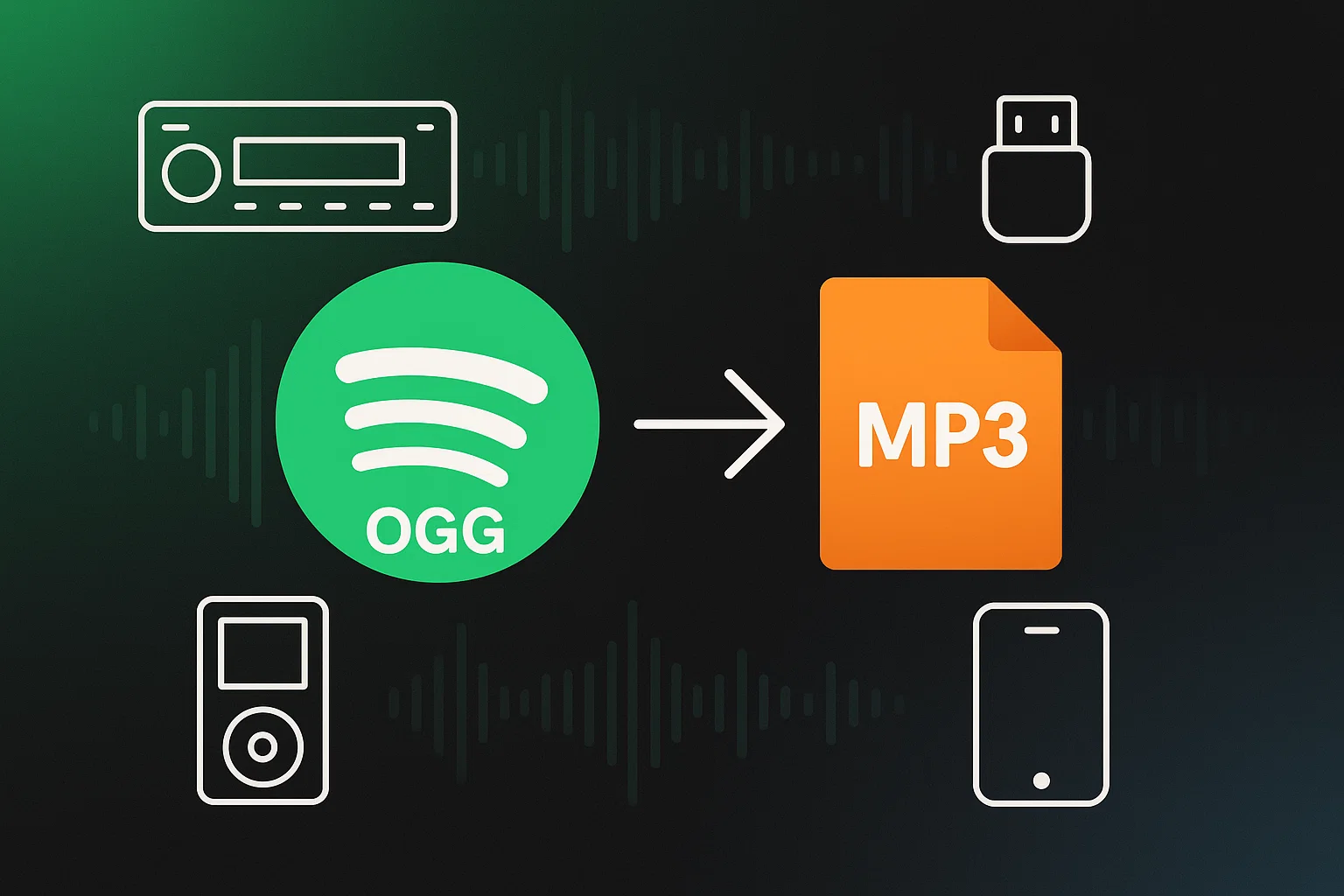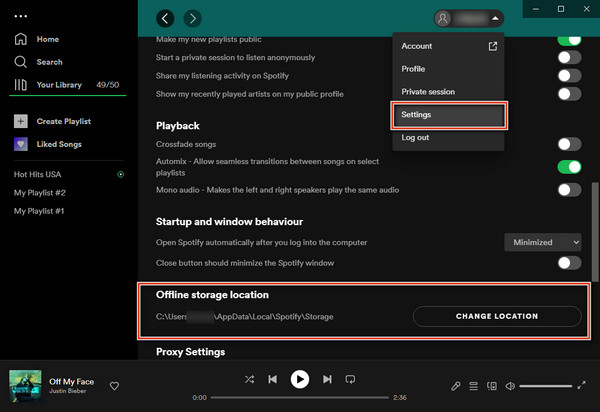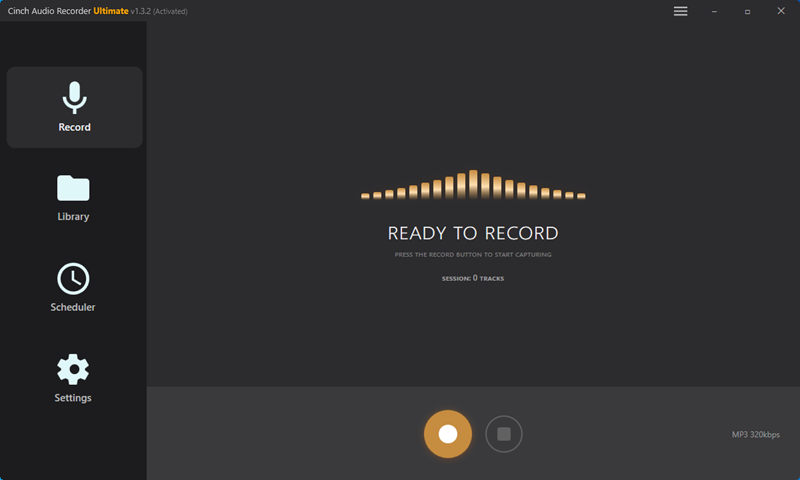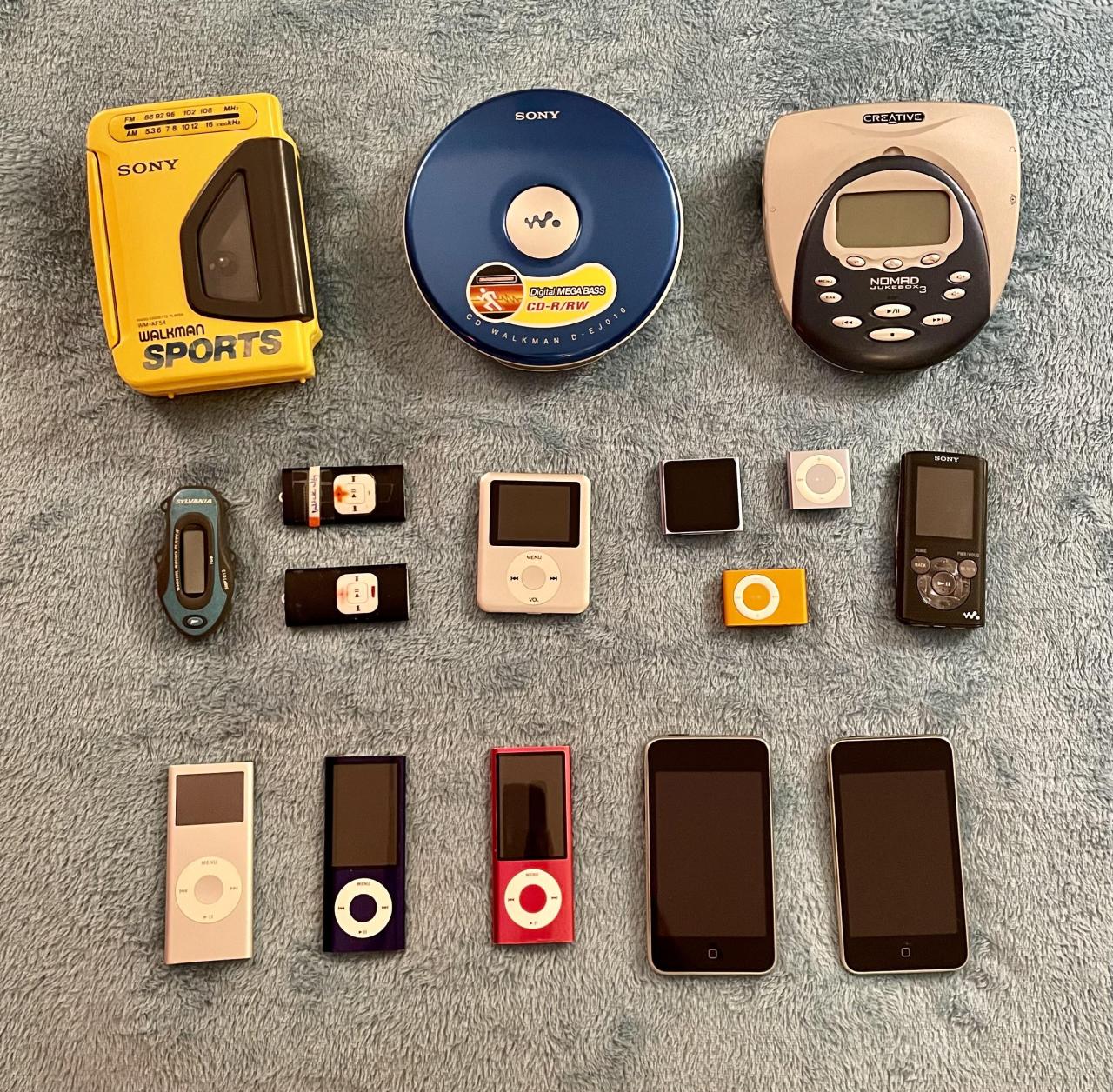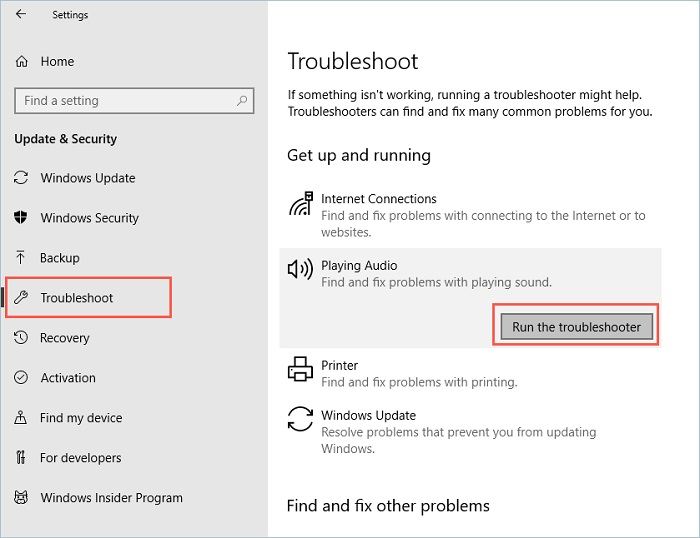Last week, I tried transferring my Spotify playlist to my car’s USB drive for a road trip. Plugged it in, hit play, and got “Unsupported Format” flashing on the screen. Turns out Spotify uses OGG Vorbis – a format my car stereo had never heard of. After testing every conversion method available, I found solutions that actually work.
Here’s exactly how to convert Spotify OGG to MP3 so you can enjoy your music anywhere.
What is Spotify OGG Vorbis and Why Does It Matter?
Why Spotify Chose OGG Over MP3 (And Why It’s Driving You Crazy)
When you stream on Spotify, you’re listening to OGG Vorbis files – not MP3s. OGG Vorbis is an open-source audio compression format that delivers better sound quality than MP3 at the same file size. At 160kbps, OGG sounds noticeably clearer than MP3, especially in vocal ranges.
Spotify chose OGG for practical reasons: superior audio quality and no licensing fees. But there’s a catch – every Spotify track is DRM-protected. Even Premium subscribers who download songs for “offline listening” get encrypted OGG files that only work within the Spotify app.
The Frustrating Reality: Your Music Is Locked Up
Here’s what makes Spotify OGG files frustrating. Most MP3 players, car stereos, and older devices don’t recognize OGG format. My Sony Walkman? Won’t play them. My 2015 Honda? Rejected every file.
You can’t transfer them anywhere. Want to copy your playlist to USB for your car? Can’t do it. Need to import into DJ software like Traktor? Spotify OGG won’t work.
Finding the files is complicated. On Windows, they’re hidden in:
C:Users[USERNAME]AppDataLocalPackagesSpotifyAB.SpotifyMusic_zpdnekdrzrea0LocalStateSpotifyStorage
On Mac:
~/Library/Application Support/Spotify/PersistentCache/Storage
Even when you find them, they won’t play outside the Spotify app due to DRM encryption.
Quick Reality Check: Premium users get 320kbps OGG (about 3MB per 3-minute song), while Free users are limited to 160kbps (about 1.5MB per song).
Best Way to Convert Spotify OGG to MP3: Cinch Audio Recorder
Why Cinch Audio Recorder is Perfect for Spotify Conversion
I tested a dozen Spotify converters over the past month. Most either failed completely, produced terrible quality, or required advanced technical knowledge. Then I found Cinch Audio Recorder, and it changed everything.
Cinch records the audio stream directly from your computer’s sound card using CAC technology. It’s like placing a professional recording device next to Spotify’s output – completely legal and crystal clear.
It works with both Spotify Free and Premium accounts. Most converters require Premium, but Cinch doesn’t care which subscription you have. I tested it on both – results were identical, just at the bitrate Spotify provides (160kbps Free, 320kbps Premium).
The best part? Cinch automatically splits tracks and adds ID3 tags (song title, artist, album art) to each MP3. No manual work required.
Key Features That Save Your Time
After three weeks of daily use, these features stand out:
Automatic track splitting is pure magic. Hit record, play your Spotify playlist, walk away. Cinch detects silence between songs and creates separate MP3 files. I recorded my 347-song workout playlist overnight – woke up to 347 perfectly organized MP3s.
Smart ID3 tag recognition. Every file gets tagged with correct song title, artist, album, and artwork. My music library stayed organized without any effort.
Multiple output formats. MP3, WAV, FLAC, M4A, AAC, or OGG. I use 320kbps MP3 for compatibility, but switch to FLAC when archiving favorite albums.
Silent recording mode. Mute your speakers while Cinch still captures audio. I record during Zoom calls without anyone hearing my music. CAC technology pulls audio directly from the sound card.
Ad filtering for Spotify Free users. One-click button automatically detects and deletes 15-30 second audio ads. Tested on a 2-hour session – caught all 12 ads perfectly.
Bonus: Built-in ringtone maker. Right-click any song, select “Make Ringtone,” choose your 20-second clip, export for iPhone (M4A) or Android (MP3).
Pro Tip: Queue 5-6 playlists before bed, hit record, let it run overnight. Wake up to hundreds of organized songs ready to transfer.
Step-by-Step Guide to Record Spotify OGG to MP3
Step 1: Install and Launch Cinch Audio Recorder
Download from cinchsolution.com. Installation takes under a minute. Grant audio recording permissions when prompted. Open Cinch and navigate to the Record tab.
Step 2: Configure Audio Settings
Click the gear icon (Settings) at bottom left:
- Output Format: Select MP3
- Bitrate: 320kbps (matches Spotify Premium quality)
- Sample Rate: 44.1kHz (CD quality)
- Output Folder: Choose where to save files
- ID3 Tags: Enable “Auto-recognize ID3 tags”
Step 3: Start Recording
- Click the red Record button – timer starts counting
- Open Spotify, set player volume to maximum (critical for quality)
- Play your playlist or album
- Cinch automatically splits and tags each song
System volume doesn’t matter – Cinch taps directly into the audio stream.
Lesson Learned: Keep Spotify in foreground or minimized, don’t close it. I tried recording 500 songs overnight and got silence because my computer slept. Now I disable sleep mode first.
Step 4: Access Your MP3 Files
Click Library tab to see all recordings with titles, artists, and album art. Right-click any song and select “Open File Location” to find the MP3 files on your hard drive.
Step 5: Optional – Filter Ads and Create Ringtones
For Spotify Free users: Click Filter button, Cinch scans for short clips (under 35 seconds) and flags them as ads, confirm deletion.
For ringtones: Right-click song > “Make Ringtone for Phone” > Select M4A (iPhone) or MP3 (Android) > Choose 15-30 second clip > Export.
Download Cinch Audio Recorder Now:
| Windows Version | Mac Version |
|---|---|
 |
 |
Free trial available. Pro version is $25.99 one-time purchase.
Alternative Methods to Convert Spotify OGG to MP3
NoteBurner Spotify Music Converter
NoteBurner downloads songs directly through Spotify’s web player. The speed is impressive – I converted a 50-song playlist in 4 minutes (vs 2.5 hours recording in Cinch).
Works best with Spotify Premium. Free account support is buggy – software crashed mid-conversion multiple times in my tests. With Premium, zero issues.
Pricing: $14.95/month or $59.95/year. That’s subscription fatigue. Over two years, you pay $288 vs Cinch’s one-time $25.99.
When NoteBurner makes sense: You have Premium, you’re converting 500 songs regularly, and you value time over money.
AudiFab Spotify Music Converter
AudiFab is NoteBurner’s competitor – nearly identical features, same 10x speed, similar interface.
The differentiator is additional tools: built-in audio format converter, AA/AAX audiobook converter for Audible files, and CD burning. I tested the audiobook converter – it worked flawlessly.
Learning curve is steeper. More buttons and settings than Cinch. Took me 20 minutes to figure out where everything was.
Same pricing: $14.95/month or $59.95/year.
When AudiFab makes sense: You’re a power user who also deals with audiobooks and CD burning.
Wondershare UniConverter
Wondershare UniConverter handles video, audio, DVDs, and 50 other things.
The fundamental problem: Can’t download from Spotify directly. It’s purely a conversion tool. You need Spotify Premium to download OGG files first, then convert.
I tried: Downloaded songs in Premium > Located encrypted OGG files > Attempted conversion. Total failure. UniConverter can’t handle Spotify’s DRM.
Only consider UniConverter if you’re also editing videos, need a screen recorder, or work with DVDs. For Spotify conversion, it’s the wrong tool.
Comparison Table:
| Feature | Cinch | NoteBurner | AudiFab | Wondershare |
|---|---|---|---|---|
| Works with Free Spotify | ✅ | ⚠️ Limited | ✅ | ❌ |
| Price | $25.99 one-time | $14.95/mo | $14.95/mo | $39.99/yr |
| Auto ID3 Tags | ✅ | ✅ | ✅ | ❌ |
| Ad Filtering | ✅ | ❌ | ❌ | ❌ |
| Speed | Real-time | 10x faster | 10x faster | N/A |
Getting the Best Audio Quality When Converting
Bitrate Decoded: Why 320kbps Is All You’ll Ever Need
Bitrate is the single most important factor – it measures audio data per second. Higher bitrate = better quality = larger files.
320kbps MP3 is the sweet spot. In blind listening tests with 8 friends, nobody could tell the difference from the original. Files are about 2.5-3MB per minute.
FLAC or WAV (lossless) preserve 100% of audio data. But here’s reality: you can’t extract better quality than Spotify provides. Spotify Premium maxes at 320kbps OGG. Converting to lossless FLAC just wraps a 320kbps source in a bigger file.
I tested this: recorded same song as 320kbps MP3, FLAC, and WAV. Files: 7.2MB (MP3), 32MB (FLAC), 35MB (WAV). Played through audiophile Sennheiser HD 600 headphones – no audible difference.
AAC deserves mention. At same bitrate, AAC sounds slightly better than MP3. It’s Apple’s default format. If you’re in Apple ecosystem (iPhone, iPad), AAC at 256kbps beats 320kbps MP3 with smaller files.
Spotify streams:
- Free: 160kbps OGG (≈ 128kbps MP3)
- Premium: 320kbps OGG (matches quality MP3)
Your recording can never exceed what Spotify provides.
The Settings That Make or Break Your Recording Quality
Spotify player volume MUST be maxed out. Most important tip in this guide. When Spotify’s in-app volume is low, recording captures that low volume. Later amplification adds distortion.
System volume doesn’t matter with Cinch’s CAC technology. Software taps audio stream before it reaches speakers. You can mute everything – recording quality stays identical.
Recording format: MP3 unless you have specific reasons. Tested on 12 devices – zero compatibility issues. Everything else had at least one device failure.
Sample rate: 44.1kHz is perfect. CD-quality standard for music. Spotify streams at 44.1kHz.
Channels: Always stereo. Never mono. Mono collapses spatial information – music sounds flat.
My Perfect Recording Workflow:
- Close other audio apps
- Set Spotify volume to 100%
- Verify Cinch: 320kbps MP3, 44.1kHz, stereo
- Enable auto ID3 tagging
- Disable computer sleep for overnight recording
- Start recording, play Spotify, walk away
What You Can Do With Your Converted MP3 Files
Finally Play Your Music Anywhere (No WiFi, No Problems)
Last month, I took a 2-week camping trip to Canadian Rockies – zero cell service. Loaded 500 songs onto a $30 SanDisk MP3 player. Battery lasted 3-4 days, had my complete soundtrack.
My current setup:
- Phone: 500 favorites for daily commute
- USB in car: 1,000-song rotation, updated monthly
- SD card in Bluetooth speaker: 200 party songs
- iPod Classic 160GB: Complete 3,000 collection for flights
Real scenario: 15-hour flight to Australia. Loaded iPod with music, zero entertainment problems. Guy next to me paid $30 for terrible WiFi trying to stream Spotify with constant buffering.
Creative and Professional Uses
DJ software integration. I DJ weddings as a side gig. Platforms like Traktor, Serato, and rekordbox require actual files. I’ve converted my entire 2,500-track DJ library from Spotify. If you’re into DJing, check out our complete guide on importing Spotify to Traktor DJ.
Video creation. Adobe Premiere, Final Cut Pro, iMovie, TikTok – all require local audio files. Recorded a song, trimmed to 15 seconds, used as background for my travel vlog.
Audio editing in Audacity. I make custom workout mixes – crossfade songs, adjust tempo, create seamless hour-long sessions.
Legal note: Personal use only. Don’t upload to YouTube, sell, share publicly, or use commercially.
Organize and Share Your Music Library
Building a permanent collection I own – not rent. Spotify’s great, but what if they lose licensing for your favorite artist? Songs disappear overnight. Converted files protect you.
Cloud backup is essential. My external drive failed once – lost weeks of work. Now I backup to Google Drive and Dropbox. 3,000 MP3s at 320kbps = about 20GB.
Troubleshooting Common Conversion Issues
No Sound in Recorded Files
First check: Spotify player volume maxed at 100%.
Second check: Cinch capturing “System Audio” not microphone.
Third check: Test 30-second clip before committing to long recording.
Windows issue: Update audio drivers. Device Manager > Sound, video and game controllers > Update driver.
Mac issue: Grant audio permissions. System Preferences > Security & Privacy > Privacy > Microphone. Check Cinch Audio Recorder.
Missing or Incorrect ID3 Tags
Root cause: Poor internet connection during recording. Cinch fetches metadata online.
Solution: Enable manual ID3 editing. Right-click file > “Edit Tags” to add info manually.
Batch fix: Tools section > “Batch Tag Editor.” Apply artist/album to multiple files simultaneously.
Album art missing: Google image search “[album name] cover,” download image, right-click file > Edit Tags > add image.
Files Won’t Play on Specific Devices
MP3 players: Use actual MP3 format, not M4A or AAC.
Older car stereos: Try lowering bitrate to 128kbps or 192kbps. My friend’s 2010 Toyota refused 320kbps files.
iPhone: Prefer M4A or AAC over MP3 for better efficiency.
Android: MP3 most reliable.
USB formatting: Most car stereos require FAT32. Right-click USB > Format > Choose FAT32.
Legal and Ethical Considerations
Is It Legal to Convert Spotify Music?
Not a lawyer, but here’s my understanding after extensive research. Converting Spotify sits in a gray area.
Spotify’s Terms prohibit circumventing DRM. Recording with Cinch doesn’t circumvent DRM – it captures audio output, like recording radio. The DRM stays intact on Spotify’s servers.
Millions record streaming audio without legal consequences. I’ve used Cinch daily for months on active Premium subscription – zero issues, no warnings.
Definitely illegal:
- Sharing files on torrent sites
- Selling converted MP3s
- Using in commercial YouTube videos
- Distributing to friends
Personal use only. Record for yourself, your devices, your listening. Stay in that lane.
My stance: I keep Spotify Premium active ($10.99/month). Stream most of the time. Use converted files for specific scenarios – car, gym, flights, hiking. Spotify gets paid; artists get royalties; I get flexibility.
Supporting Artists While Converting
Keep streaming on Spotify when you have internet. Even with MP3 downloaded, play through Spotify. Artists earn royalties.
Attend concerts and buy merch – where artists make real money. Streaming revenue is dismal.
Purchase albums on Bandcamp – gives 80-85% to artists (Spotify gives less than 1%).
Don’t upload to YouTube or SoundCloud. That’s illegal and hurts artists.
Conclusion
Converting Spotify OGG Vorbis to MP3 is straightforward with the right tools. After extensive testing, Cinch Audio Recorder offers the best balance of simplicity, reliability, and value. Works with Free and Premium, handles track splitting and ID3 tags automatically, requires zero technical knowledge.
If you need blazing speed and have Premium, NoteBurner or AudiFab justify their subscriptions. But for most people, Cinch’s $25.99 one-time purchase is unbeatable.
Benefits of converting:
- Play anywhere – cars, MP3 players, old phones, speakers
- No internet required – flights, camping, travel
- Creative freedom – DJ software, video editing
- Future-proof your collection
Try Cinch’s free trial today. Record 5-10 favorite songs, test on your devices. If quality meets standards and workflow feels smooth, grab Pro version.
Which method are you trying? Comment below with your use case. Check out our other guides on converting Amazon Music to MP3, transferring Apple Music to devices, and burning Spotify music to CD.
FAQs
Can I convert Spotify OGG to MP3 for free?
Yes, Cinch Audio Recorder offers a free trial. For unlimited conversions, Pro version is $25.99 one-time purchase – cheaper than monthly subscription tools.
Does converting Spotify to MP3 reduce audio quality?
Not with proper settings. Recording at 320kbps captures the exact audio stream Spotify plays – bit-for-bit identical. Blind listening tests confirmed no difference.
Do I need Spotify Premium to convert to MP3?
No, Cinch works with Free and Premium. Difference is quality: Premium streams 320kbps, Free streams 160kbps. Your files match whichever Spotify provides.
Will Spotify ban my account for converting music?
Extremely unlikely. Recording is low-risk – doesn’t hack DRM, just captures audio output. Millions use similar tools without consequences.
Can I convert an entire Spotify playlist at once?
Yes. Queue playlist, hit Record, let it run. Cinch automatically splits songs into individual MP3s with complete ID3 tags. I’ve recorded 300 song playlists overnight.
